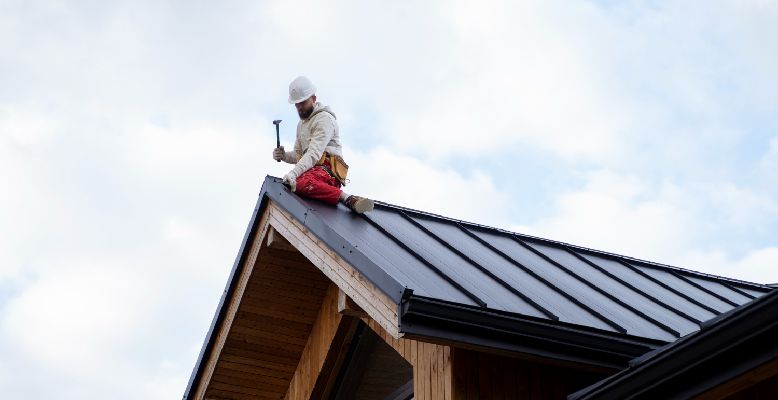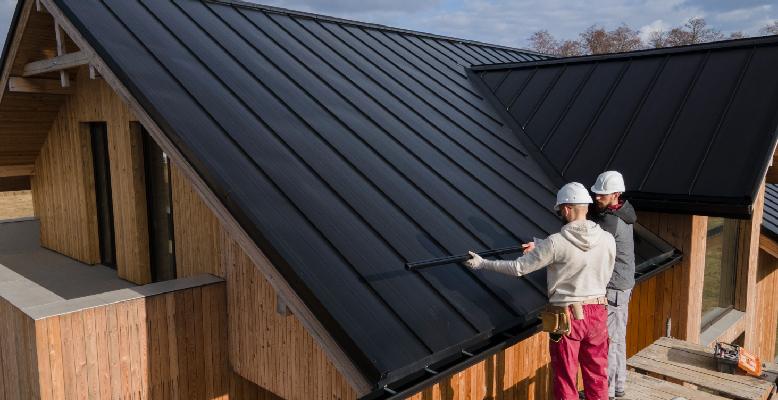When it comes to roofing, it’s easy to think that all roofs are created equal. However, one crucial factor can dramatically change the way a roof is installed and its overall performance: roof pitch. The angle at which your roof slopes not only influences aesthetic appeal but also impacts durability, drainage, insulation efficiency, and even weather resistance.
In this post, we’ll dive deep into the world of roof pitches—unpacking their significance and how they dictate everything from material choice to installation techniques. Whether you’re planning a new build or considering a renovation, understanding roof pitch can save you time and money while ensuring your home stands strong against whatever Mother Nature throws its way! So grab your hard hat as we explore the essential role of roof pitch in roofing installations!
Introduction
When it comes to roofing, one aspect often gets overlooked: the roof pitch. This seemingly simple measurement can have a profound impact on everything from installation efficiency to material longevity. Whether you’re building a new home or replacing an old roof, understanding the nuances of roof pitch is crucial for making informed decisions. Join us as we delve into how this critical factor shapes your roofing experience and why it matters more than you might think. Let’s explore the world of roof pitches together!

What is Roof pitch?
Roof pitch refers to the steepness or angle of a roof. It is typically expressed as a ratio, comparing the vertical rise to the horizontal run. For instance, a 4:12 pitch means that for every 12 horizontal inches, the roof rises by 4 inches.
Understanding roof pitch is crucial for various reasons. The angle affects not only the aesthetic appeal but also functionality and durability. A steeper pitch can enhance water runoff efficiency, reducing risks like pooling or leaks. Conversely, lower pitches may require special materials and careful design considerations to ensure proper drainage.
In essence, knowing your roof’s pitch helps homeowners make informed decisions about roofing materials and styles while also impacting long-term maintenance needs.
Importance of Roof pitch in Installation
Roof pitch plays a critical role in roofing installation, influencing both aesthetics and functionality. A well-defined angle can enhance the visual appeal of your home while ensuring effective water runoff. Higher pitches tend to shed snow and rain more efficiently. This reduces the risk of leaks and prolongs the roof’s lifespan. Proper pitch also affects ventilation, which is vital for maintaining indoor air quality.
Moreover, roof pitch impacts insulation effectiveness. An appropriately pitched roof allows for better airflow within attic spaces, helping regulate temperature throughout the year. Selecting the right pitch ensures compatibility with various roofing materials. Certain shingles or tiles perform optimally on specific slopes, enhancing durability and performance over time.
Understanding these factors aids homeowners in making informed decisions during their roofing project. It’s essential to consider how each aspect of roof pitch aligns with personal preferences and local climate conditions.
Impact on Material Selection
The roof pitch significantly influences the type of materials suitable for your roofing project. Steeper pitches often necessitate heavier materials like slate or tile, which can withstand high winds and snow loads. These options not only enhance durability but also add a distinctive aesthetic.
On flatter roofs, lighter materials such as membrane systems or asphalt shingles are typically preferred due to their flexibility and ease of installation. A flat pitch can limit water runoff, making waterproofing critical in material selection.
Additionally, specific local building codes may dictate what materials are allowed based on the roof’s slope. Homeowners must ensure compliance while balancing aesthetics and functionality. Choosing the right material enhances performance and longevity, ultimately impacting the overall success of your roofing system.
Impact on Water Drainage and Maintenance
The roof pitch significantly influences how water drains off your home. A steeper pitch allows rain and snow to slide off more easily, reducing the risk of pooling on the surface. This minimizes potential leaks and structural damage over time. Conversely, a flatter roof can collect water if not properly designed or maintained. Standing water leads to increased wear and tear, making regular inspections essential for flat roofing installation in Yonkers, NY.
Proper drainage systems become crucial in these situations, ensuring that any accumulated moisture is swiftly directed away from sensitive areas. Regular maintenance checks will also help identify blockages before they cause serious issues.
Ultimately, the choice of roof pitch directly affects not just immediate aesthetics but long-term durability and upkeep costs as well. The right design can save homeowners both time and money in maintenance efforts down the line.

Flat Roofing vs. Pitched Roofing for Yonkers, NY Climate
Yonkers, NY faces a diverse climate with distinct seasons. This variability plays a crucial role in roof design selection. Flat roofing is often more affordable and easier to install. However, it can struggle with water drainage during heavy rainfall or snowmelt, which is common in winter months. Proper insulation and waterproofing become essential for longevity.
On the other hand, pitched roofing excels in shedding water and snow efficiently thanks to its angled surface. It reduces the risk of leaks and ice dams—common issues that homeowners may face here. Each option has its merits based on aesthetics and functionality. Pitched roofs tend to provide better ventilation as well, enhancing energy efficiency throughout the year.
Ultimately, considering Yonkers’ weather patterns will guide you toward making an informed choice suitable for your needs.
Tips for Choosing the Right Pitch for Your Home
Choosing the right roof pitch for your home is crucial. Start by considering your local climate. Areas with heavy snowfall should lean towards steeper pitches to allow snow to slide off easily. Think about aesthetics as well. A higher pitch can give a classic look, while a flatter design often suits modern styles.
Assess the architectural style of your home too; it’s essential that the pitch complements rather than clashes with existing features. Don’t forget to check local building codes and regulations regarding roof pitch. Compliance can save you from future headaches.
Finally, consult roofing professionals who understand the nuances of different pitches in relation to materials and installation techniques. Their insights will guide you toward making an informed decision tailored for your specific needs and preferences.
Working with Perfect Contractor Group
Choosing the right roofing contractor is crucial for any installation project. At Perfect Contractor Group, we understand the nuances of roof pitch like no other. Our team brings years of experience to every job. We assess your home’s architectural features and local climate factors before recommending a suitable pitch. This ensures not just aesthetic appeal but also functionality and durability.
We prioritize quality materials tailored to your chosen roof pitch. Whether steep or gentle, our expertise helps in selecting options that perform well under various weather conditions. Communication is key during installation. We keep you informed at every step, ensuring that you’re satisfied with both the process and the outcome.
With us, you receive personalized service that meets your unique needs while adhering to industry standards. Trust Perfect Contractor Group for a seamless roofing experience focused on precision and excellence.

Why Roof pitch Matters for a Successful Roofing Project
Roof pitch plays a crucial role in the overall success of your roofing project. It affects not only the aesthetic appeal of your home but also its functionality and longevity. Choosing the right roof pitch can influence material selection, water drainage, and maintenance requirements.
Understanding how different pitches perform in various climates is essential for homeowners, especially those in areas like Yonkers, NY. The local weather conditions can significantly impact which type of roofing will serve you best over time.
When working with experienced contractors who understand the nuances of roof pitch, you ensure that your installation meets both safety standards and homeowner satisfaction. A well-planned roofing project takes into account all these factors to deliver a durable solution that enhances property value.
Ultimately, paying attention to roof pitch can lead to fewer repairs down the line and provide peace of mind for years to come. Selecting an appropriate design contributes substantially to creating a functional space while maintaining visual harmony with your surroundings.





